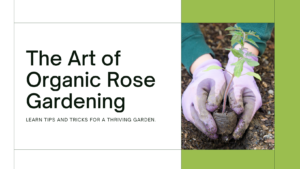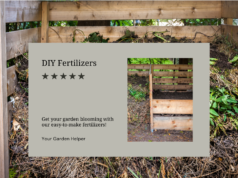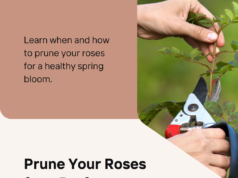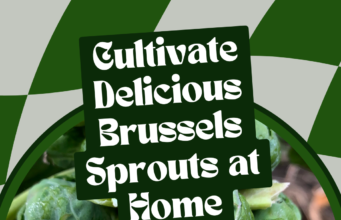
Are you ready to take your gardening skills to the next level? Organic rose gardening may be just the challenge you’re looking for. By using natural methods, you can create a flourishing garden filled with radiant roses that are both beautiful and eco-friendly.
Whether you’re a seasoned gardener looking for something new or a beginner excited to learn, this article is packed with effective tips and tricks for achieving success in organic rose gardening.
Key Takeaways:
- Organic rose gardening uses natural methods to cultivate beautiful, eco-friendly roses.
- Effective tips and tricks can help you achieve success in organic rose gardening, whether you’re a beginner or a seasoned gardener.
- By focusing on healthy soil, choosing disease-resistant varieties, and using organic pest control methods, you can create a flourishing rose garden.
- Maintaining proper pruning techniques and general care and maintenance can ensure the health and beauty of your rose plants.
- Starting your organic rose gardening journey is easy with the right tools, knowledge and love for gardening.
Understanding Organic Rose Gardening
When it comes to caring for your roses, there are many benefits to choosing organic methods. Not only are they sustainable and eco-friendly, but they also provide numerous advantages for your plants and the environment.
The Benefits of Organic Rose Care
One of the most significant benefits of organic rose care is the avoidance of harmful chemicals. By using natural methods, you can protect your plants from toxins and ensure the safety of the surrounding wildlife. Additionally, organic methods promote plant and soil health, leading to stronger and more resilient roses.
Sustainable Rose Gardening Practices
Sustainable rose gardening involves using techniques that are environmentally friendly and promote long-term growth and flourishing. This includes practices such as composting, mulching, and using natural fertilizers. By choosing sustainable methods, you can reduce waste, conserve resources, and care for your roses in a way that is beneficial for both them and the planet.
Eco-Friendly Rose Care
Eco-friendly rose care involves utilizing practices that minimize harm to the environment and reduce your carbon footprint. This can include using rainwater for watering your roses, creating natural pest control solutions, and choosing organic products whenever possible.
Chemical-Free Rose Gardening
One of the most essential aspects of organic rose gardening is the avoidance of harsh chemicals and pesticides. Instead, opt for natural pest control methods, such as companion planting and providing habitats for beneficial insects. Choosing chemical-free methods not only protects your roses but also contributes to a healthier and more sustainable environment.
“The love of gardening is a seed once sown that never dies.” – Gertrude Jekyll
Preparing Your Rose Garden
Creating and maintaining a beautiful rose garden doesn’t have to be a daunting task. With the right knowledge and techniques, your rose garden can flourish into a stunning display of radiant roses. In this section, we will cover essential steps for maintaining a healthy and thriving rose garden, including rose garden maintenance, organic rose fertilizer, soil preparation, and sustainable gardening practices.
Rose Garden Maintenance
Proper maintenance is key to ensuring healthy and beautiful rose plants. To keep your rose garden looking its best, you should regularly prune your roses, remove dead or damaged foliage, and provide adequate water and sunlight. It is also essential to look out for any signs of pests or diseases and take appropriate action to prevent them from spreading.
Organic Rose Fertilizer
Using organic fertilizer is an excellent way to improve the health and longevity of your rose garden. Organic fertilizers work by providing essential nutrients to your plants while also improving soil quality and promoting healthy root growth. Examples of organic fertilizers include bone meal, fish emulsion, and compost.
Soil Preparation
The quality of your soil is essential to the health of your rose plants. Before planting your roses, it is crucial to prepare the soil properly. Start by removing any weeds or other debris from the planting area and then mix in organic matter, such as compost or manure. This will help improve soil fertility and provide essential nutrients for your rose plants to thrive.
Sustainable Gardening
Practicing sustainable gardening techniques is not only good for the environment; it can also benefit your rose garden in numerous ways. Using organic methods for pest and disease control, conserving water, and choosing eco-friendly products will help ensure the long-term health and vitality of your rose garden.
“Healthy soil means healthy plants, and that’s why soil preparation is an essential step in growing beautiful roses.” – Gardening expert
Pruning Techniques for Roses
Pruning is an essential technique for nurturing healthy and beautiful roses. Proper pruning helps to maintain the plant’s shape, enhance its beauty, and promote optimal growth. However, it’s essential to understand the right methods to ensure that your rose bushes thrive. Here are some organic rose pruning techniques to help you get started:
Timing is key:
Prune your roses during the dormant season, which is typically in late winter or early spring before new growth appears. This enables the plant to focus its energy on new growth, leading to healthier plants and more abundant blooms.
Clean and sharp tools:
Before you start pruning your roses, ensure that your tools are clean and sharp to avoid damaging your plants. A clean cut is crucial to prevent disease and pests from entering the plant. Avoid using dull or rusty tools that can harm your rose bushes.
Pruning basics:
Start by removing dead or diseased wood and any branches that cross over or rub against each other. Cut at a 45-degree angle, about ¼ inch above an outward-facing bud. This encourages the plant to grow in an outward direction, promoting better air circulation and sunlight absorption.
Training your roses:
Proper pruning also helps train your roses to grow in the desired shape. For example, if you want your rose bush to grow vertically, prune the side branches that grow horizontally.
Organic methods:
Use organic methods to deal with pests and diseases, such as removing and disposing of infected leaves or using organic sprays. Avoid using chemical pesticides that can harm beneficial insects and pollinators.
Using these organic rose pruning techniques can help you maintain healthy and beautiful rose bushes for years to come.
Organic Pest Control for Roses
If you want to maintain organic rose gardening, it’s essential to control pests using natural methods. Using chemical pesticides can harm the helpful insects and pollinators in your garden, which can have a negative impact on your rose’s health and growth. In this section, we will explore some effective and eco-friendly pest control strategies for your rose garden.
Companion Planting for Roses
Companion planting involves planting herbs and flowers that are beneficial to your roses. These plants can help repel harmful pests while attracting beneficial insects that can help pollinate your roses. For instance, planting marigolds, lavender, and thyme will keep away harmful pests like aphids while attracting bees and butterflies to your garden.
Natural Pest Control for Roses
As an alternative to harsh chemicals, you can use natural pest control methods to keep your roses healthy and pest-free. Some effective natural sprays include:
| Solution | Ingredients |
|---|---|
| Garlic Spray | Chopped garlic, water, mineral oil, and dish soap |
| Neem Oil Spray | Neem oil, water, and dish soap |
| Soap Spray | Water, dish soap, and cooking oil |
When using any of these sprays, be sure to spray both the top and bottom of the leaves as well as the stems. Repeat every 7-10 days or after rainfall.
By using these natural pest control methods, you can ensure that your rose garden remains healthy and thriving without the use of harmful chemicals. Keep your roses radiant and pest-free while nurturing a sustainable and eco-friendly garden.
Disease Prevention and Management
Your organic rose gardening success depends significantly on disease prevention and management. Unfortunately, rose plants are susceptible to various diseases that can impact their growth and health. However, by implementing preventive measures and choosing disease-resistant rose varieties, you can keep your roses healthy and thriving.
Choosing Disease-Resistant Rose Varieties
When selecting rose varieties for your garden, it’s essential to choose disease-resistant ones. This can significantly reduce the risk of rose diseases affecting your plants. Look for varieties that are known to be resistant to common rose diseases, such as black spot and powdery mildew. Some popular disease-resistant rose varieties include:
| Rose Variety | Disease Resistance |
|---|---|
| ‘Carefree Wonder’ | Black Spot, Powdery Mildew |
| ‘Knock Out’ | Black Spot, Powdery Mildew |
| ‘Sunny Knock Out’ | Black Spot, Powdery Mildew |
By choosing disease-resistant rose varieties, you can significantly reduce the risk of your roses falling victim to common diseases.
Rose Disease Prevention
Preventing rose diseases is crucial for the long-term health of your plants. Here are some tips to help prevent common rose diseases:
- Choose disease-resistant rose varieties
- Plant roses in well-draining soil
- Water at the base of the plant to avoid getting the leaves wet
- Prune regularly to improve air circulation
- Remove diseased leaves and debris from the garden
- Avoid overhead watering
- Apply organic disease-prevention treatments
By implementing these strategies, you can keep your roses healthy and flourishing. Additionally, regularly inspecting your roses for signs of disease can help you identify and treat any issues before they become major problems.
Maintaining Healthy Rose Soil
Healthy soil is essential for growing beautiful roses organically. Here are some organic gardening tips to keep your rose soil thriving:
- Test your soil regularly: Use a soil testing kit to determine the nutrient levels in your soil. This will help you identify any deficiencies and allow you to amend your soil accordingly.
- Add organic matter: Compost, leaf mold, and well-rotted manure are all excellent sources of organic matter that can improve soil structure and nutrient availability.
- Use natural fertilizers: Choose organic fertilizers, such as bone meal, blood meal, and fish emulsion, to provide your rose plants with the nutrients they need without the use of harsh chemicals.
- Mulch your soil: A layer of organic mulch, such as shredded leaves, straw, or grass clippings, can help retain moisture and suppress weed growth while improving soil health.
By following these simple tips, you can ensure that your rose soil is healthy, nutrient-rich, and ready to support radiant roses that will add color and beauty to your flourishing garden.
Rose Care and Maintenance
Proper care and maintenance are crucial for healthy and vibrant rose plants. Here are some essential tips to help you ensure that your roses thrive:
Selecting the Right Rose Varieties
Choosing the right rose varieties is key to successful organic rose gardening. Select varieties that are well-suited to your climate and soil type. Hybrid tea roses, for example, are known for their beautiful blooms and strong fragrance, but they require a lot of attention and care. If you’re new to rose gardening, it may be best to start with more straightforward varieties like shrub roses or miniature roses.
You should choose rose varieties that are well-suited to your climate and soil type.
Watering Your Rose Plants
Roses need regular watering, especially during hot and dry weather. Deep watering once a week is better than frequent shallow watering, as it encourages the roots to grow deeper and helps the plants to withstand drought better. Watering your roses in the early morning or evening is best, as this allows the water to soak in before the heat of the day.
Deep watering once a week is better than frequent shallow watering.
Feeding Your Roses
Feeding your roses with organic fertilizers is essential for healthy growth and vibrant blooms. You can choose to fertilize your roses organically with compost tea, manure, or other organic fertilizers. Avoid using chemical fertilizers, which can harm beneficial organisms and pollute the soil.
Feeding your roses with organic fertilizers is essential for healthy growth and vibrant blooms.
Pruning Your Roses
Pruning is an essential part of rose care. Prune your roses in the early spring, just before new growth appears. This will help to shape the plant and encourage healthy growth. Use sharp, clean tools, and make clean cuts to avoid damaging the plant. Remove dead or diseased wood, as well as any crossing branches that can rub against each other and cause damage.
Pruning is an essential part of rose care.
Protecting Your Roses
Protect your roses from pests and diseases by keeping an eye out for early signs of infestation or infection. Aphids, thrips, and spider mites are common pests that can damage your roses, so monitor your plants regularly and take action at the first sign of a problem. Use organic pest control methods, such as companion planting and natural sprays, to protect your roses without harming beneficial insects or polluting the soil.
Use organic pest control methods to protect your roses without harming beneficial insects or polluting the soil.
By following these tips for rose care and maintenance, you’ll be able to enjoy healthy and beautiful roses in your garden for years to come!
FAQ
What is organic rose gardening?
Organic rose gardening is a method of caring for rose plants using natural and sustainable practices, without the use of chemical fertilizers or pesticides.
What are the benefits of organic rose gardening?
Organic rose gardening promotes a healthier environment, reduces the risk of harmful chemical exposure, and produces more vibrant and long-lasting roses.
How do I prepare my rose garden for organic gardening?
To prepare your rose garden, focus on maintaining healthy soil by using organic fertilizers, removing weeds, and ensuring proper drainage.
When and how should I prune my roses?
Roses should be pruned during their dormant season, typically in late winter or early spring. Use clean and sharp tools, cutting at a 45-degree angle just above a bud or leaf node.
How can I control pests in my rose garden organically?
Organic pest control methods for roses include using natural insect repellents, introducing beneficial insects like ladybugs, and practicing companion planting with pest-repellent plants.
What are some common diseases that affect roses, and how can I manage them organically?
Common rose diseases include black spot, powdery mildew, and rust. Organic management techniques include choosing disease-resistant varieties, proper sanitation, and using natural fungicides like neem oil.
How can I maintain healthy soil for my roses?
Maintain healthy soil by regularly adding organic matter like compost, using natural fertilizers, and practicing crop rotation to prevent nutrient depletion.
What are some general tips for rose care and maintenance?
Proper watering, feeding with organic rose fertilizers, regular pruning, and selecting the right rose varieties for your climate are essential for maintaining healthy and beautiful roses.
Any advice for beginners starting their organic rose gardening journey?
Start with disease-resistant rose varieties, pay attention to soil health, and seek guidance from experienced gardeners or horticulturists. Remember to be patient and enjoy the process!
Conclusion
Congratulations on embarking on your organic rose gardening journey! By following the tips and tricks outlined in this article, you are well on your way to nurturing beautiful, healthy roses using natural methods.
How to Start Organic Rose Gardening
If you’re just getting started with organic rose gardening, the best place to begin is by selecting disease-resistant rose varieties and preparing the soil properly. Take the time to research which rose varieties will thrive in your region and climate for the best results.
Organic Rose Gardening Advice
Remember to use eco-friendly and sustainable practices for maintaining your rose garden, such as using organic fertilizers and pest control methods. Avoid using chemical-based products that can harm the environment and your rose plants.
Organic Rose Gardening for Beginners
Starting a new hobby can be daunting, but don’t let that discourage you from trying organic rose gardening. Start small and make sure to keep up with routine maintenance tasks like watering and pruning. As you gain experience, you can expand your garden and experiment with new rose varieties.
Organic Rose Gardening Tips and Tricks
Remember to prune your roses regularly and properly to promote healthy growth and remove dead or diseased stems. Additionally, companion planting can be a useful technique to naturally repel pests and attract beneficial insects to your garden.
With dedication and patience, your rose garden will flourish with radiant blooms and healthy plants. Happy gardening!
















